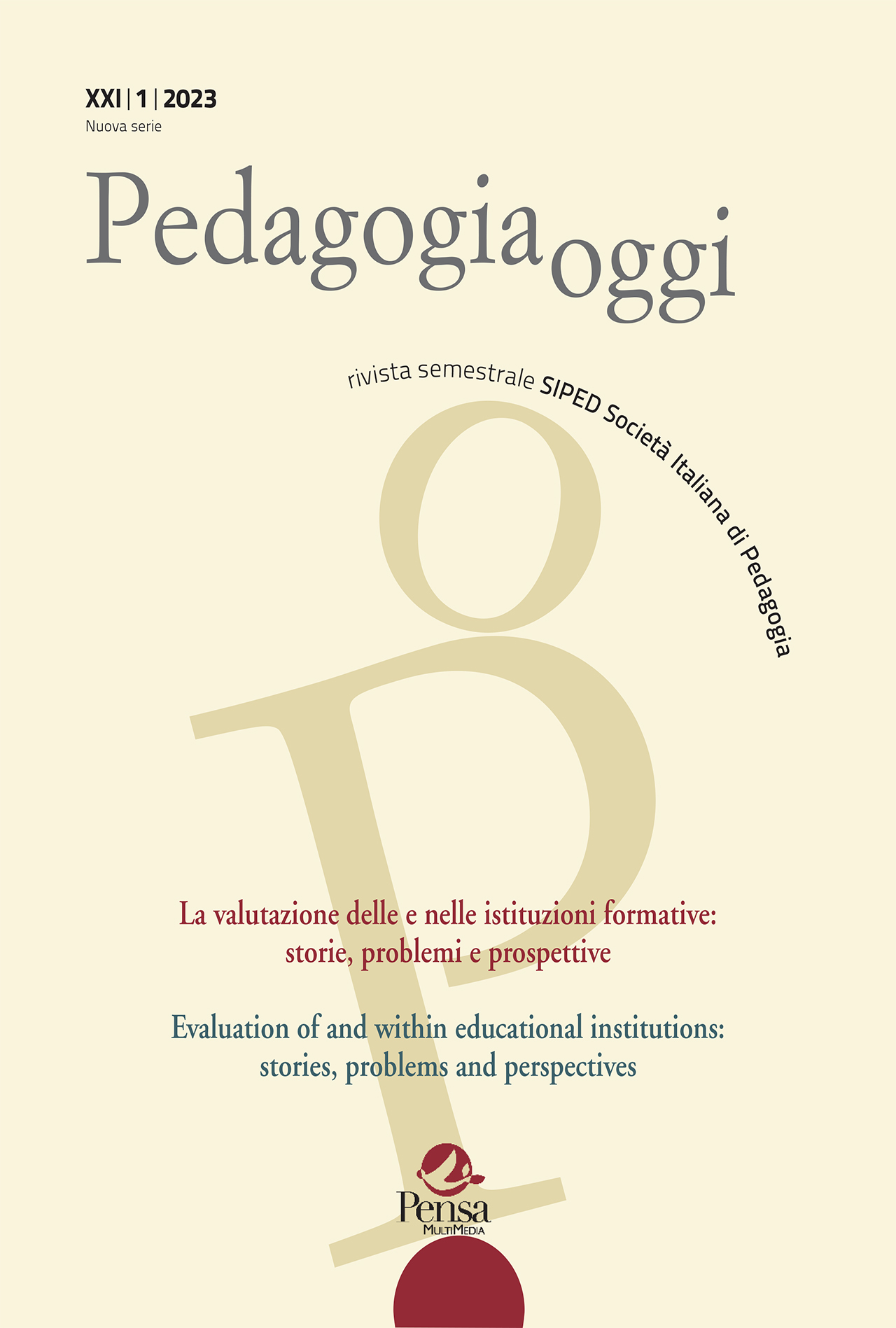Improving the evaluation skills of practitioners in the juvenile justice system.
Methods and results of a professional development research project
DOI:
https://doi.org/10.7346/PO-012023-21Keywords:
valutazione, formazione, ricerca, partecipazione, competenzeAbstract
The evolution of the main evaluation models present in the literature outlines a progressive shift of the focus of interest from the concepts of measurement, certification and classification to those of participation, negotiation and empowerment. In this perspective, within educational services, evaluation processes should be understood as devices for reflecting on action, with the opportunity to regulate it along the way. The challenge is to integrate the experiential knowledge of practitioners with the transformative function of pedagogical research, in order to produce improvements in educational practices. In this direction, the article describes a professional development research experience called 'Evaluation as a procedural dimension of socio-educational work', carried out in collaboration between the University of Sassari and the Juvenile Justice Center for Sardinia which involved practitioners from all juvenile justice services in the region, with the aim of responding to their explicit training needs, providing spaces for reflection, construction and strengthening of evaluation skills.




